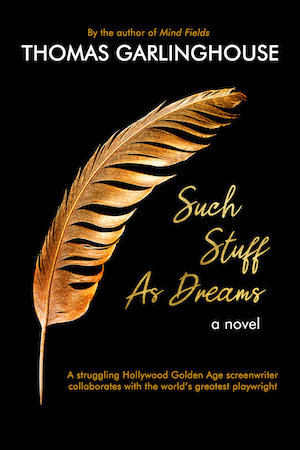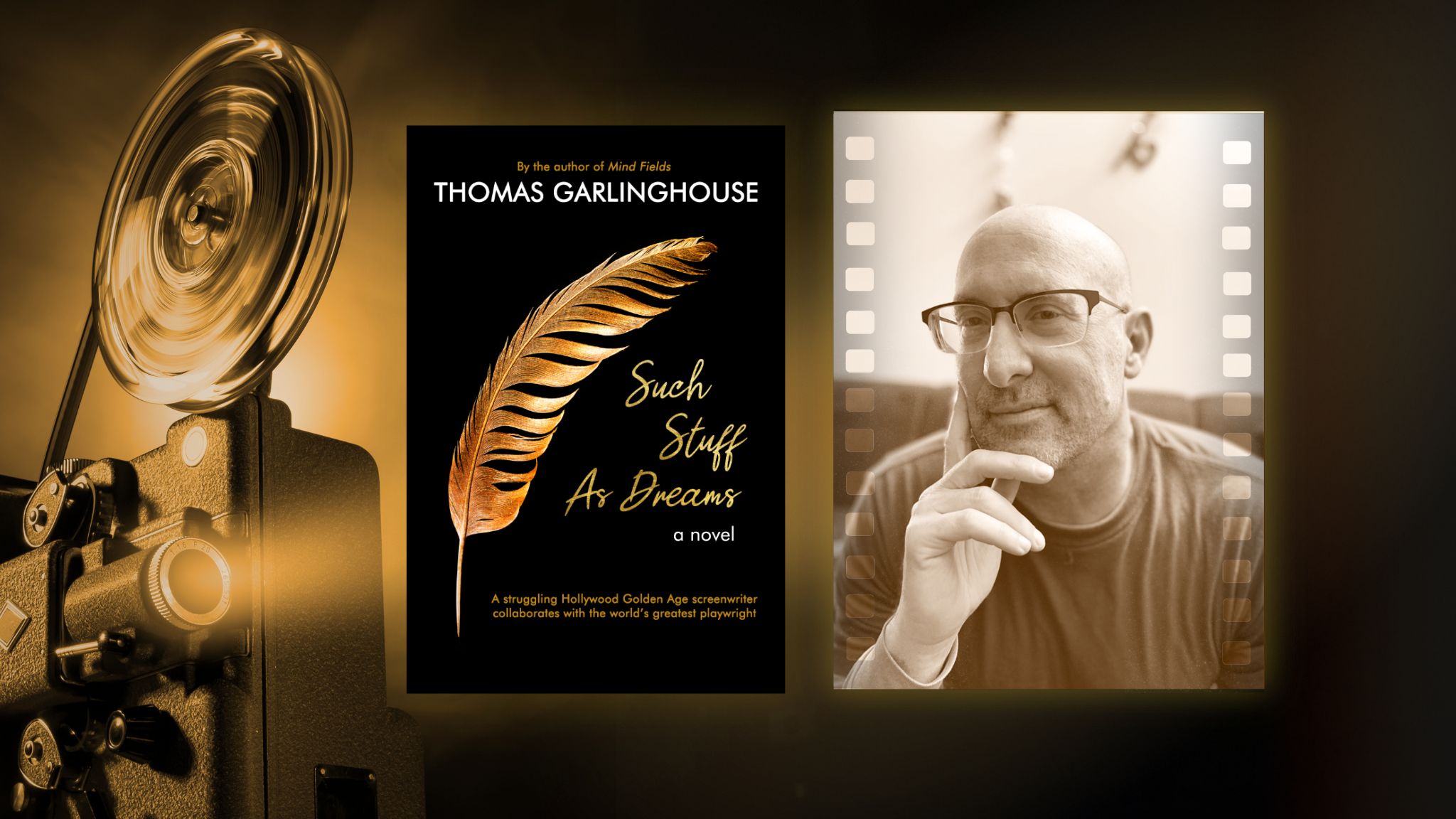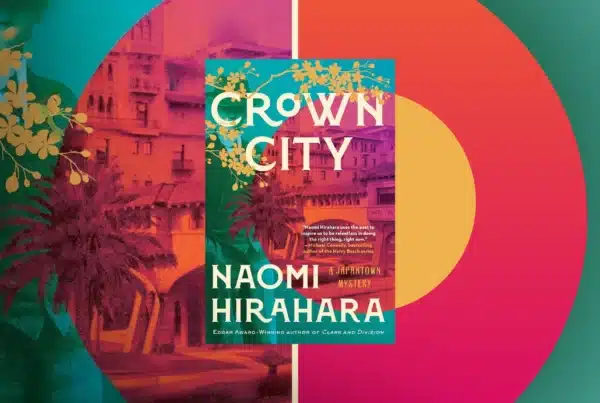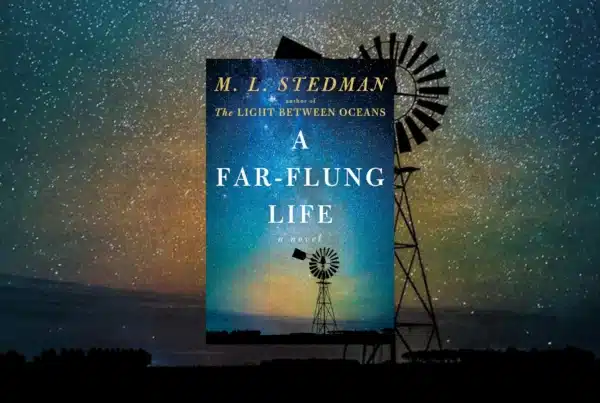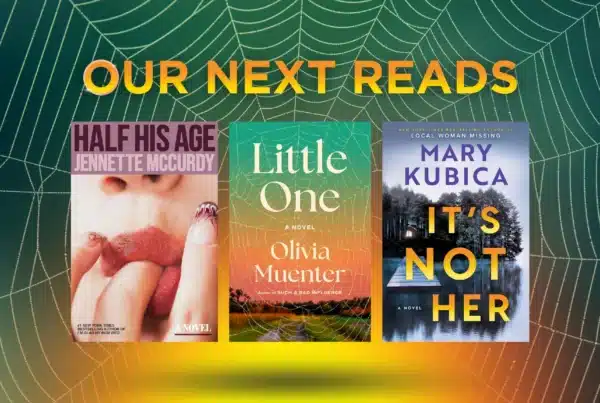Such Stuff as Dreams by Thomas Garlinghouse
Combining imagined characters with real ones such as Clark Gable, Carole Lombard and a pretty good writer named William Shakespeare, Such Stuff as Dreams (Open Books) by Thomas Garlinghouse is part ghost story (although not your typical one), part tale of Hollywood’s Golden Age and part chronicle of a man’s journey through the buffeting winds of love, change, loyalty and things remembered.
The author has given us a most entertaining and inventive novel that will appeal to many audiences. In this recent BookTrib Q&A, he provides more insight into his work.
Q: Where did you get the idea for this book?
A: I have always wanted to write a ghost story because I’ve always enjoyed stories in which characters interact with the supernatural realm. But, at the same time, I’ve never been interested in what one might call a stereotypical ghost story, where the spirit is malevolent and wants to cause harm and mayhem. I took some inspiration from Josephine Leslie’s novel The Ghost and Mrs. Muir, because in that story the ghost is ultimately a helper spirit who is concerned with Lucy Muir’s life and fate. I’m also a huge fan of William Shakespeare so it was sort of a slam dunk to partner the ghost of the great playwright with a struggling screenwriter.
Q: How is your use of ghosts in the story different from what one might call a traditional ghost story?
A: The ghosts in Such Stuff as Dreams are not evil beings; they’re not intent on terrorizing the living or causing havoc. They are there to help, guide, encourage and inspire. Ultimately, they harken back to the Greek idea of a daimon, an individual’s personal spirit who acts as a helper and mentor, and watches over the individual from birth. I’ve always loved this idea when I first encountered it in the works of Plato. Socrates talks about his personal daimon, a disembodied voice who often warned him of upcoming dangers.
Q: Tell us about your protagonist Joe Holliday. What makes him tick?
A: I’d like to think of Joe as the quintessential 1930s Hollywood screenwriter: a bit cynical and hard bitten, overeducated and somewhat of a loner, but someone who nonetheless enjoys the art of storytelling and wants to tell a story that inspires, challenges and makes the reader think. At one point in the novel, I mention the real-life screenwriter Robert Riskin, who penned several of Frank Capra’s screenplays. Joe is somewhat based on him, though only peripherally. I also drew inspiration from William Holden’s screenwriter character, Joe Gillis, in the classic movie Sunset Boulevard.
Q: The work of Shakespeare — and Shakespeare himself — plays a crucial role in this book. Explain how and why you incorporated this element.
A: Partnering the ghost of Shakespeare — arguably the world’s greatest writer — with a 1930s screenwriter seemed like a perfect fit. I’ve always loved Shakespeare and his works, and this provided an excellent opportunity to share the Bard and his plays with a larger audience. It also gave me the opportunity to try my hand at interpreting Shakespeare through my own biased lens. The life and character of Shakespeare is not well known, despite his popularity, so defining his character is up for grabs. The character of Shakespeare in my novel is solely my own interpretation, nothing more. But I didn’t want him to just randomly appear in Joe’s life for no apparent reason. There had to be a larger, overarching reason — and there is.
Q: There’s a spiritual element to the book. Explain how that drives the story.
A: Spiritual bonds — based ultimately on love and friendship — are, to me, the most important elements in the story, the elements that tie the whole story together. They are the ties that bring Joe and Shakespeare together and they are also the ties that move the story along. Without them, I don’t think the actions of the characters would make a lot of sense. Why these bonds exist is something the reader learns over time. At first, it’s a mystery but later it becomes clear. And as the reader learns, these ties are ancient, forged long ago. I also try to make it clear, especially in Paramahansa Yogananda’s lecture in a later chapter, that the essence of spirituality is love, compassion and friendship.
Q: What was your favorite part of this book to write?
A: Any chapter with Clark Gable in it was the most fun to write. I hadn’t planned for Gable to play a large role in the story but as I continued to work out the narrative, he assumed ever greater importance. His outgoing, eager, almost boy-like character was a fun contrast to Joe’s more introspective, serious and cerebral demeanor. I especially enjoyed writing about how Gable’s character changed as the novel progressed — how at first he was actively hostile to Shakespeare’s plays, but gradually grew to discover their merit — and magic. I learned that in real life Gable loved to quote Shakespeare’s sonnets — but always in private. I’d like to think, in my own fantasy world, that Joe played a role in introducing Gable to the Bard.
Q: What do you hope readers will take away from this work?
A: I’m pretty modest in my writing goals. I don’t want to change the world, “speak truth to power” or become a critically acclaimed master of style. I simply want to tell a good story, one that readers will find entertaining, inventive and compelling. But it is not solely a sense of escapism that I want to cultivate; I’d like my novel to stay with readers long after they read it. I’d like to give them, in some small way perhaps, an insight into this complex and maddening, but still beautiful world. I’d love to have my novel encourage a sense of wonder in the reader — that the world is still a place of mystery, that we still don’t have all the answers, and that we’re all in this thing together.
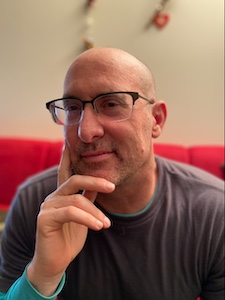 Tom Garlinghouse is a science journalist and novelist based in Santa Cruz, CA. He received an MA in science journalism from the University of California, Santa Cruz, in 2019 and has written for numerous publications both in print and online. Prior to his journalism career, he worked as an archaeologist, having received his Ph.D. in archaeology from the University of California, Davis. His is a runner, avid surfer and hiker who enjoys the outdoors, exotic foods, classical music and strong English teas.
Tom Garlinghouse is a science journalist and novelist based in Santa Cruz, CA. He received an MA in science journalism from the University of California, Santa Cruz, in 2019 and has written for numerous publications both in print and online. Prior to his journalism career, he worked as an archaeologist, having received his Ph.D. in archaeology from the University of California, Davis. His is a runner, avid surfer and hiker who enjoys the outdoors, exotic foods, classical music and strong English teas.
